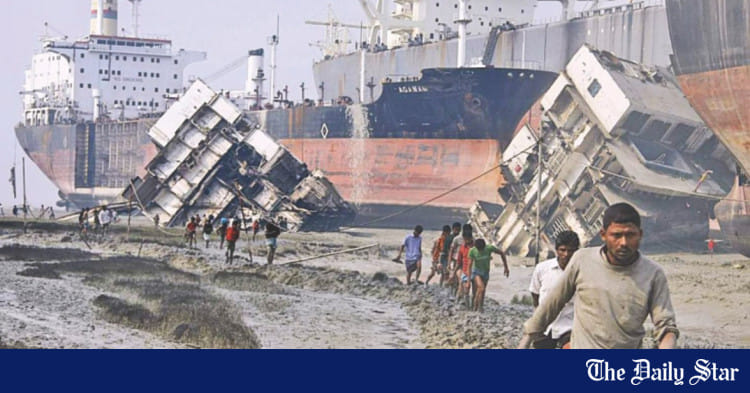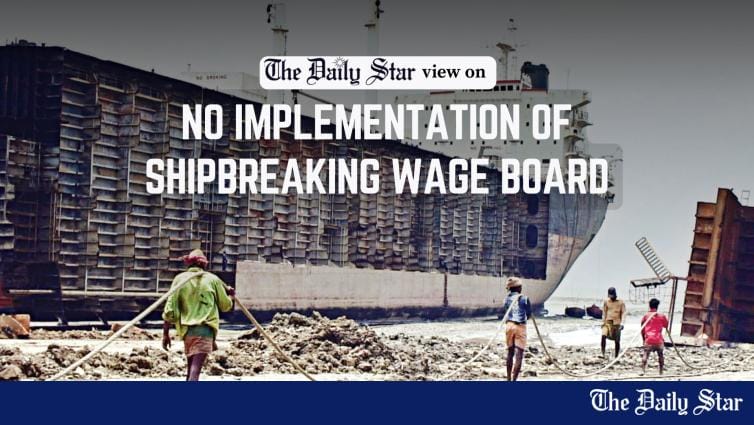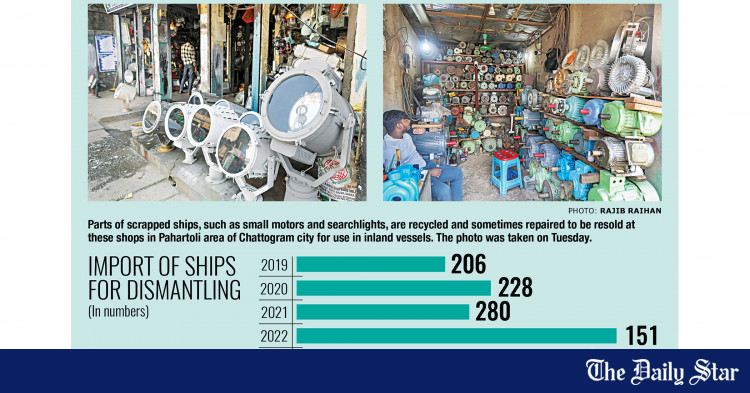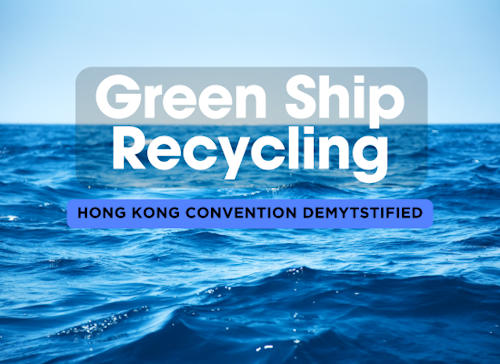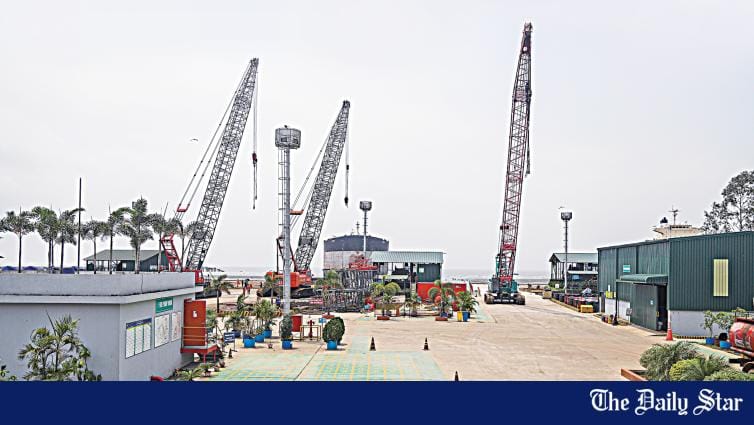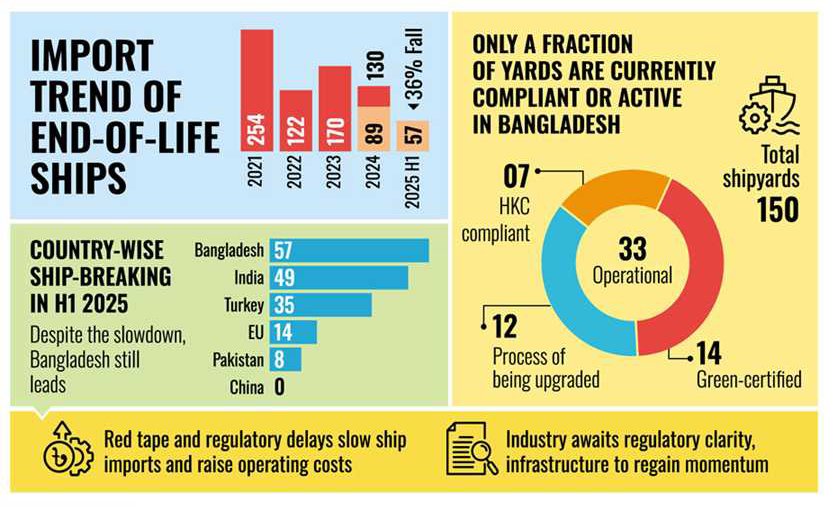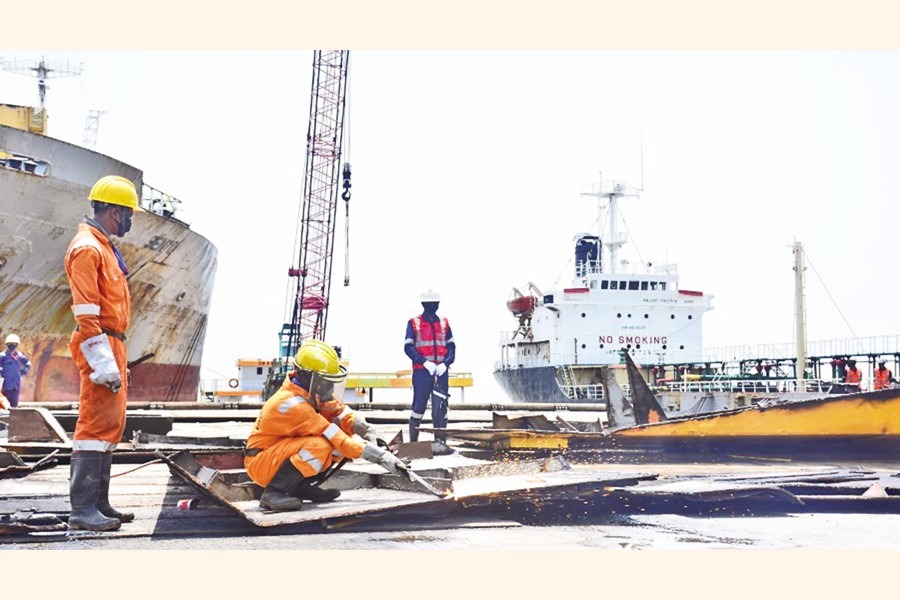- Messages
- 3,154
- Reaction score
- 1,604
- Copy to clipboard
- Moderator
- #1
Source
:
https://www.tbsnews.net/economy/bangladesh-again-tops-ship-recycling-despite-65-decline-708262
Bangladesh again tops in ship recycling despite 65% decline

Infograph: TBS
Bangladesh maintains the position as the top ship recycling nation despite a 65% decrease in its shipbreaking activities, reports the United Nations Conference on Trade and Development (UNCTAD).
Accounting for over one-third of global ship recycling, the country saw a reduction from 8.02 million tonnes in the previous year to 2.8 million tonnes in the 12 months leading up to January 2023.
Stakeholders attributed this decline to several factors, including the ongoing dollar crisis, diminished demand due to the near-completion of mega projects, high scrap prices in the international markets and the Russia-Ukraine conflict.
Mohammad Taslim Uddin, managing director of KR Ship Recycling Yard, told The Business Standard that there was a surge in demand for steel products in local markets driven by government-led mega projects.
"As these projects near completion, the demand has dwindled, discouraging shipbreakers from importing additional vessels," said Taslim, adding that the Ukraine-Russia war had impacted ship imports, as Russian sources of scrap ships were unavailable.
Jahir Uddin Rinku, managing director of PHP Ship Recycling Yard and vice president of the Bangladesh Ship Breakers and Recyclers Association (BSBRA), expressed concerns about the challenges faced by shipbreakers.
He noted that the difficulty of obtaining US dollars due to exorbitant bank exchange rates hindered their ability to import ships for recycling. Also, the gradual rise in international scrap ship prices and the widening gap between local and international markets have contributed to the decline in ship dismantling activities in the past year.
UNCTAD data shows in the 12 months to January 2023, Bangladesh recycled 2.8 million tonnes of ships accounting for 37.2% of the world total, followed by India with 32% and Pakistan with 17%.
Of the total ships recycled by Bangladesh, 50.4% were oil tankers, 41% were bulk carriers, 2% were ferries and passenger ships, 1.9% were chemical tankers, and 1.1% were general cargo ships, said the report titled "Review of Maritime Transport 2023" published on Wednesday (27 September).
But from January 2021 to January 2022, Bangladesh recycled 8.02 million tonnes of ships accounting for 52.4% of the world total, of which nearly 57% were oil tankers, 25% were bulk carriers and 9% were liquefied gas carriers, reads the annual flagship report.
Some disruptions, including financial pressures, constrained recycling activities, mentioned the report.
However, this year, interest in ship recycling picked up as shipping market conditions softened and issues relating to letters of credit in Bangladesh eased.
Ship recycling is anticipated to get a bigger boost in 2023 as shipowners renew and upgrade their fleets to comply with new Greenhouse Gas (GHG) emission regulations of the International Maritime Organisation (IMO).
More containerships are expected to be recycled in anticipation of a surge in new builds and lower freight rates in the coming years.
At the same time, the ship recycling market is expected to become more volatile, influenced by the IMO's EEXI and CII regulations, which help assess the CO2 emissions intensity of ships.
Factors such as speed reduction and removal from service for ship retrofitting will play a role in shaping the market, said the report.
In 2022, worldwide 7.5 million gross tonnes, representing less than 0.5% of the total active fleet, were sent for recycling.
Despite more stringent environmental rules and rising steel costs, market conditions took precedence, with shipowners eyeing the peaks in freight rates. Demand for older tonnage increased the average value of older vessels.
Asia leading the shipping fleet
At the start of 2023, 18 of the 35 major ship-owning companies were in Asia. China is the second-largest ship-owning country after Greece, followed by Japan (3rd), Singapore (4th), Hong Kong, and China (5th).
When measured by value, ship owners in China have an 11.04% share of the world fleet, second to Greece with 11.8%. Japanese shipowners hold a 10.73% share.
Hong Kong is the world's fourth-largest flag state of registration in terms of deadweight tonnage (DWT), with 200.07 million deadweight tonnes in its fleet — an 8.8% share of the world fleet. This represented a 3.7% fall in deadweight tonnes between 2022 and 2023.
In terms of vessel numbers, Hong Kong, China has a 2.4% share of the world fleet with a total of 2,537 vessels flying its flag.
Singapore takes fifth place in the leading flags of registration, followed by China in sixth place and Japan in tenth place. Other flags in the top 35 include Indonesia (12), the Republic of Korea (18), India (19), Vietnam (22), Malaysia (25).
Asian countries continue to lead in cargo handling performance. According to the Container Port Performance Index (CPPI), jointly produced by the World Bank and S&P Global Market Intelligence, 18 of the top 25 ports globally are in Asia, including 11 in Eastern Asia and four in Western Asia.



